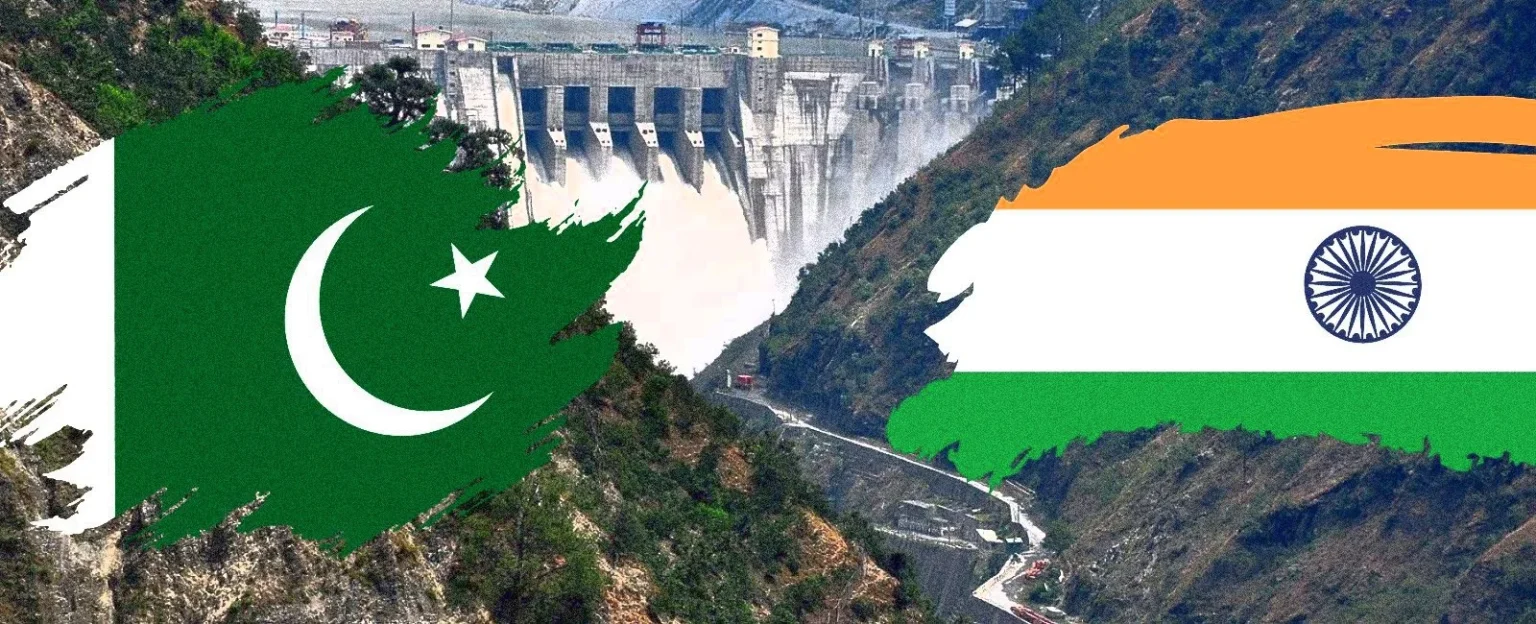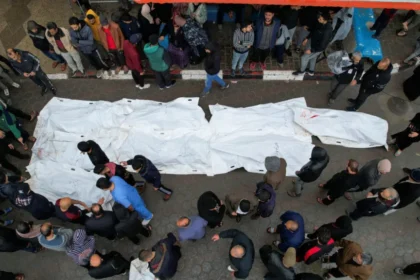The recent terrorist attack in Pahalgam, located in the Indian-administered region of Jammu and Kashmir, has escalated tensions between India and Pakistan, with profound implications for the future of the region, tourism, and international relations. The tragic event, which claimed the lives of 26 individuals, including 25 Indians and one Nepalese tourist, has spurred both national outrage and international concern. Here, we explore the different perspectives surrounding the attack, its impact on India-Pakistan relations, and the global implications of this crisis.
What Happened in Pahalgam?
On April 22, 2025, gunmen opened fire on a group of tourists in Pahalgam’s Baisaran Valley, a popular tourist destination in Jammu and Kashmir. The attackers targeted non-Muslim tourists, questioning their religious identity before opening fire. The “Kashmir Resistance” militant group, allegedly linked to Pakistan-based extremists, claimed responsibility for the attack, adding fuel to the ongoing dispute between the two nuclear-armed nations.
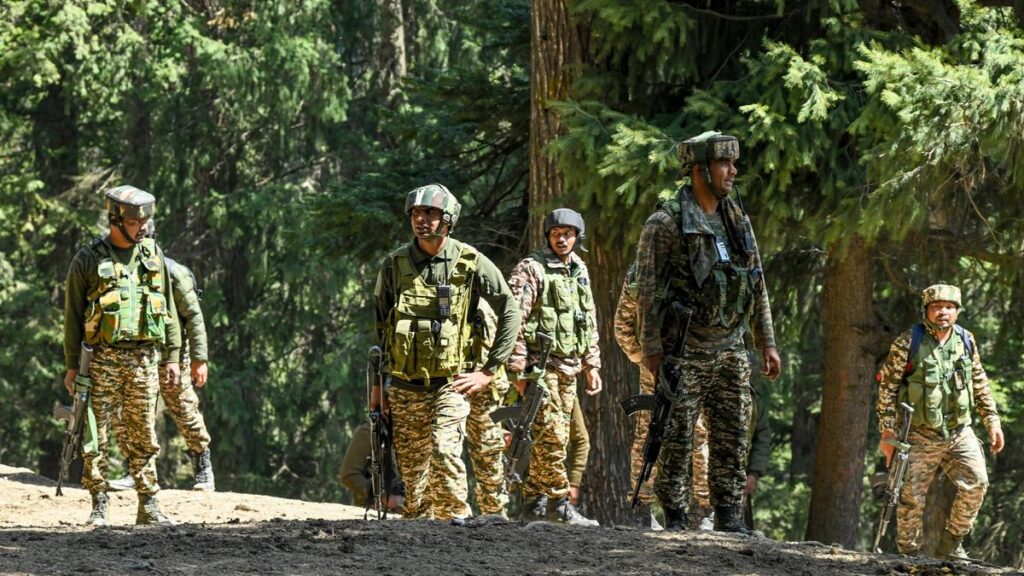
In response to the attack, India took immediate measures, including suspending the Indus Waters Treaty, expelling Pakistani diplomats, and closing the border crossing with Pakistan. Additionally, India launched crackdowns in Kashmir, detaining hundreds of individuals and demolishing homes suspected of being linked to militant activities.
India’s Perspective: Security Concerns and a Call for Accountability
From India’s viewpoint, the attack represents not only a security breach but also a direct assault on the nation’s sovereignty. The attack, occurring in a region that has long been a flashpoint of territorial disputes, underscores the ongoing threat of militancy and terrorism in Kashmir.
The Indian government has long accused Pakistan of harboring militants operating in Kashmir, and the attack has given further credence to these allegations. By suspending key bilateral agreements such as the Indus Waters Treaty and expelling Pakistani diplomats, India is sending a strong message that acts of terrorism will not be tolerated and will lead to diplomatic consequences.
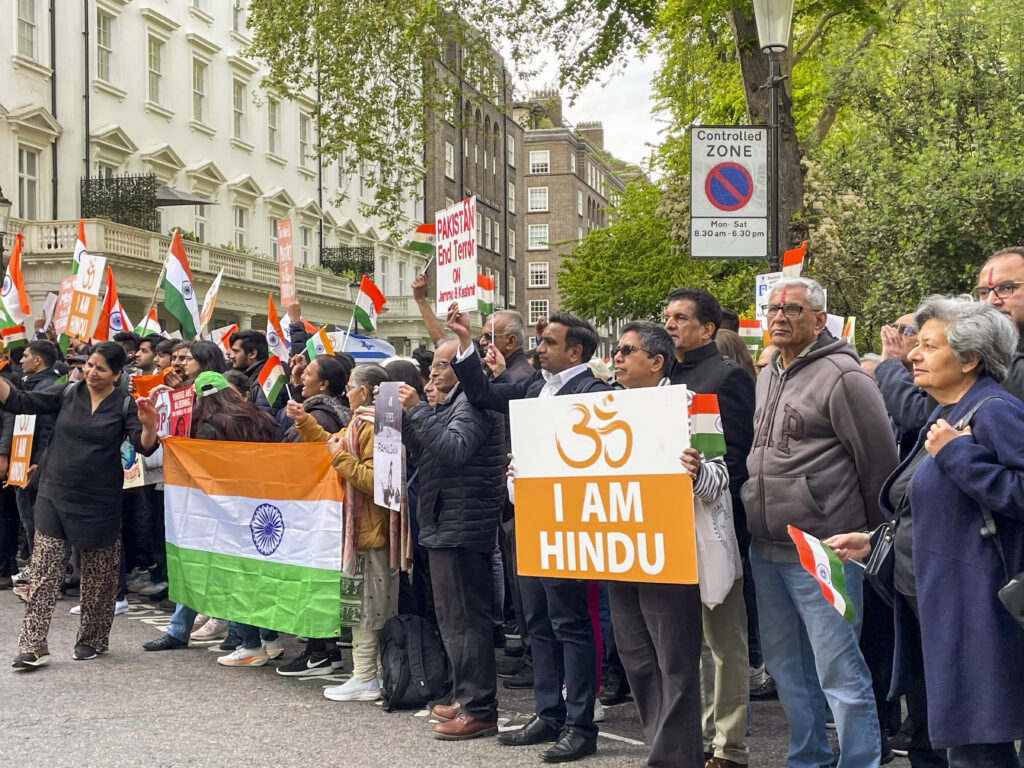
Indian officials have also emphasized the importance of protecting tourists, as Pahalgam has become a major tourism hub in recent years. The violence, therefore, not only threatens national security but also the livelihoods of local businesses dependent on tourism. In this context, India’s response—seeking to isolate Pakistan diplomatically—reflects a commitment to safeguarding national interests while signaling a demand for accountability in Pakistan’s handling of militant activities on its soil.
Pakistan’s Perspective: Denouncing Violence and Promoting Dialogue
On the other side, Pakistan has vehemently denied any involvement in the attack. The Pakistani government condemned the violence and reiterated its commitment to combating terrorism within its own borders. However, Pakistan has also called for neutral investigations into the incident, offering to cooperate with international bodies to uncover the perpetrators and their motivations.
Pakistan’s stance is rooted in its desire to prevent the escalation of tensions with India, which already has a strained relationship due to the longstanding Kashmir dispute. Pakistan has repeatedly stated that it does not support terrorism and has been a victim of extremist violence as well. The country has expressed concerns that India’s harsh diplomatic measures, including the suspension of critical agreements, could worsen the situation and lead to further instability in the region.
For Pakistan, the attack is seen as a tragedy, but it also fears that India’s actions could lead to an escalation of conflict that may be difficult to contain. As both nations have nuclear capabilities, Pakistan is especially wary of any move that could provoke military action, which would have disastrous consequences for both sides and for the region as a whole.
The Impact on Kashmir: A Struggle Between Security and Tourism
In the wake of the attack, the tourism sector in Pahalgam and the larger Kashmir Valley has been hit hard. Before the attack, the region had been experiencing a resurgence in tourism, with over 3.5 million visitors in 2024. The recent violence has caused a sharp decline in tourists, with many travelers canceling their plans due to safety concerns. Local businesses, which rely heavily on tourism, are facing significant economic hardships, with the region’s economy taking a considerable hit.
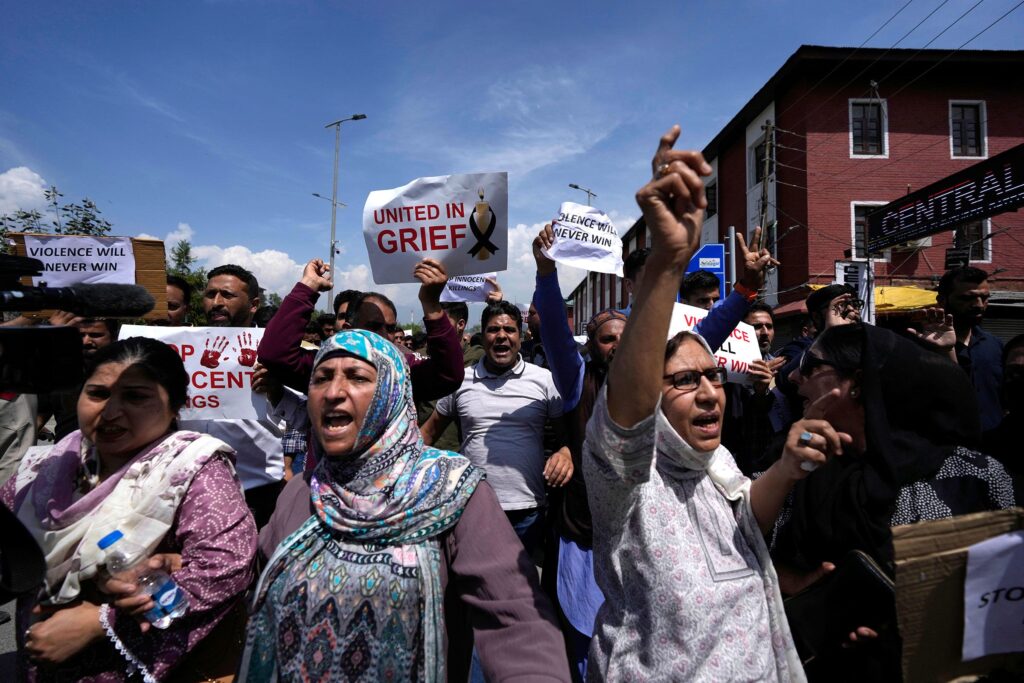
However, some tourists have begun returning to Pahalgam, drawn by the area’s natural beauty and the absence of travel restrictions. Local businesses are offering discounts to encourage visitors, and security personnel are working to ensure the safety of tourists. While the path to recovery is uncertain, residents and businesses remain hopeful that with the right measures, tourism can gradually rebound.
The Global Perspective: Concerns Over Stability and Diplomacy
The attack has not only affected India and Pakistan but has also garnered attention from the international community. Both the United States and Iran have called for restraint from both countries, urging India and Pakistan to avoid further escalation and prioritize diplomacy. The United Nations has expressed its deep concern over the attack and urged both sides to work towards a peaceful resolution of their differences.
The global community is particularly worried about the potential for this incident to spiral into a wider conflict, given the nuclear capabilities of both nations. The United States, a key ally of India, has emphasized the importance of maintaining peace in the region, warning that any misstep could have devastating consequences not only for India and Pakistan but also for global stability.
In addition, global organizations like the European Union have expressed concerns about the deteriorating security situation in Kashmir and the humanitarian impact of ongoing violence. The international community is calling for a comprehensive peace process that addresses the root causes of the Kashmir dispute while also ensuring the safety and well-being of the people living in the region.
The Path Forward: Diplomacy and Peacebuilding
The future of Kashmir and the broader India-Pakistan relationship hinges on the ability of both countries to engage in meaningful dialogue and diplomatic efforts. While the Pahalgam attack has intensified hostilities, it has also highlighted the urgent need for both sides to address the long-standing issues that fuel violence and unrest in the region.
India and Pakistan must work together to ensure that the peace process does not get derailed by extremist elements on either side. Both countries should commit to confidence-building measures that reduce tensions and foster trust, particularly in areas such as trade, tourism, and humanitarian assistance.
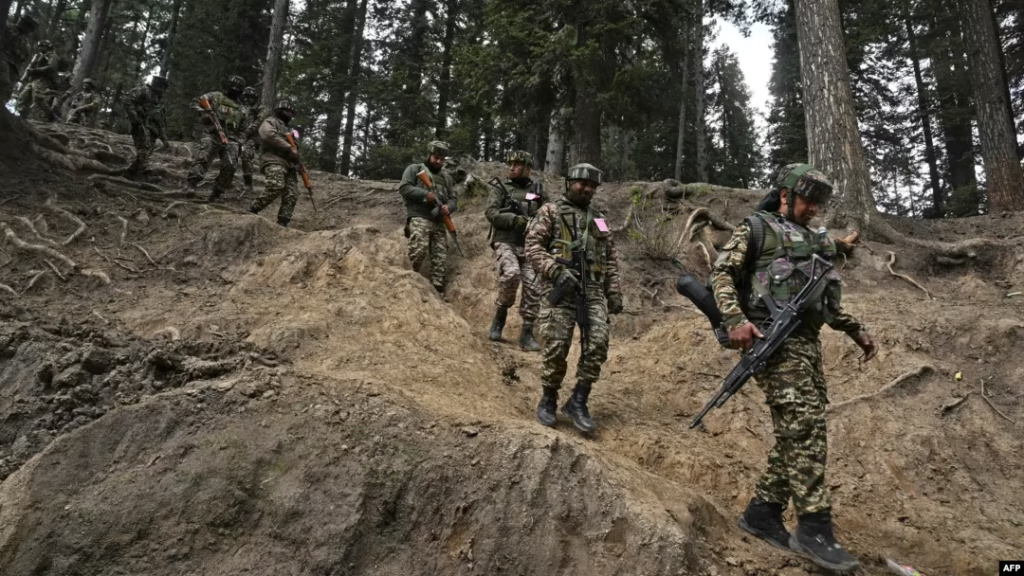
The international community, including the United Nations and major global powers, must play an active role in facilitating dialogue between the two nations. Support for Kashmir’s political autonomy, respect for human rights, and a concerted effort to combat terrorism are crucial components of any lasting peace in the region.
Conclusion: A Fragile Hope for Peace
The Pahalgam attack serves as a grim reminder of the volatility in Kashmir and the precarious relationship between India and Pakistan. While both countries are grappling with the aftermath of the violence, the global community’s role in promoting peace and stability will be critical in shaping the future of the region. As tensions remain high, it is essential for both India and Pakistan to prioritize dialogue and work towards de-escalation in order to avoid further bloodshed and preserve the prospects of peace in one of the world’s most sensitive regions.
For those wishing to visit Kashmir, it is important to stay updated on the situation and heed the advice of travel advisories issued by local authorities and international organizations. The natural beauty of the region continues to attract visitors, and with the right efforts, it can rebuild its tourism industry while working towards peace and stability.


